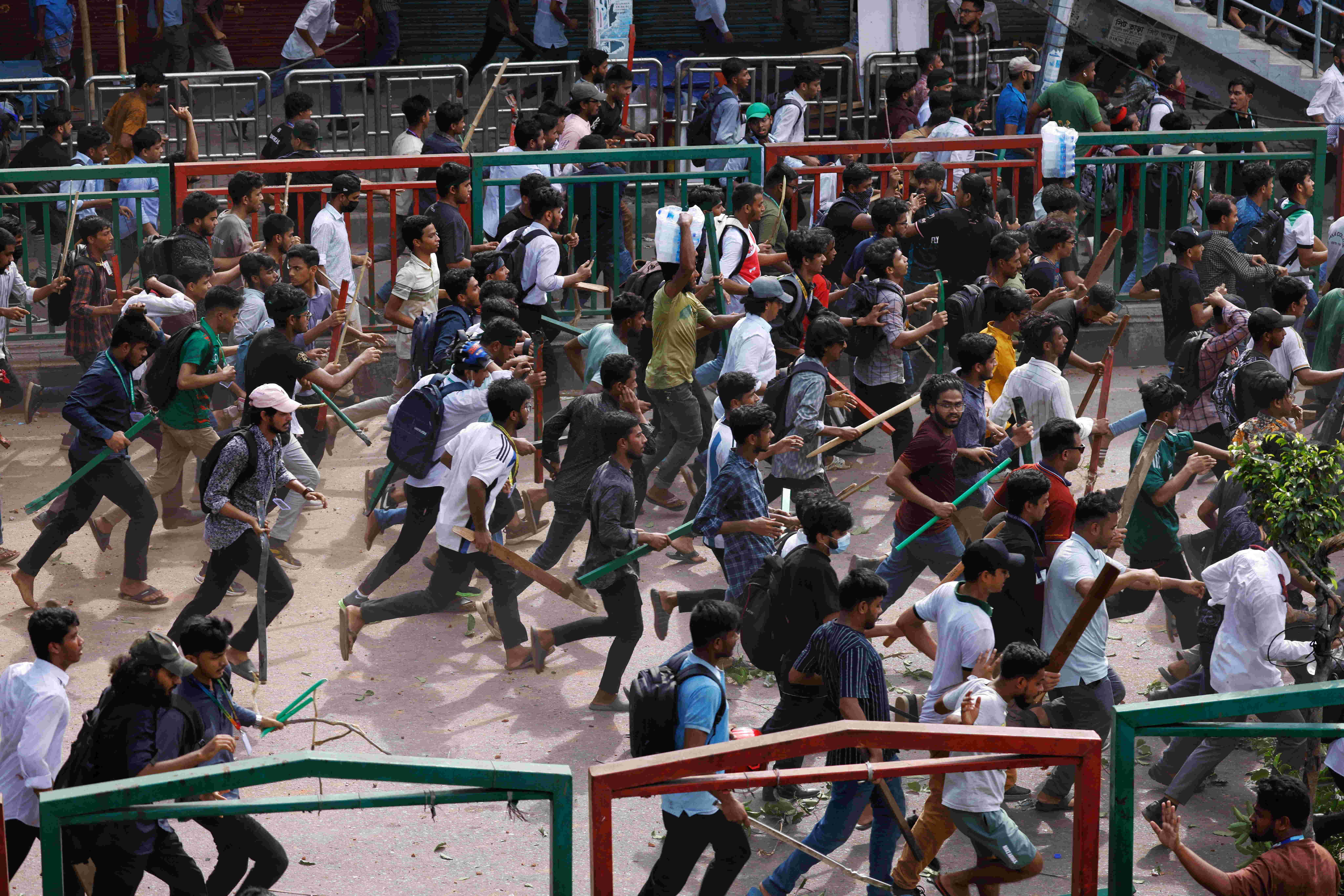The world may have missed certain stories by not having a dedicated foreign correspondent in Dhaka.
As Bangladesh reaches a historic turning point, where anti-government protests have led to the dramatic ousting of the once-unshakeable Prime Minister Sheikh Hasina, it is the local journalists—who are reporting from the frontlines, for both national and international publications—directly from the ground.
Meanwhile, foreign correspondents stationed in other regions of South Asia—most prominently in New Delhi—offering broader regional context and insights into the geopolitical dynamics are absent from the ground.
As the world watches the situation in Bangladesh unfold, the role of local journalists becomes increasingly vital. For instance, award-winning freelance journalist, Redwan Ahmed, based in Dhaka, has offered firsthand accounts of the protests and developments, capturing the raw emotions and realities on the ground. His reports have been featured in prominent publications such as The Guardian and Voice of America. Meanwhile, foreign correspondents for the Financial Times, such as Benjamin Parkin and South Asia bureau chief John Reed, based in New Delhi, offer broader analysis. They examine the geopolitical and diplomatic tensions between India and Bangladesh following the ousting of Sheikh Hasina.
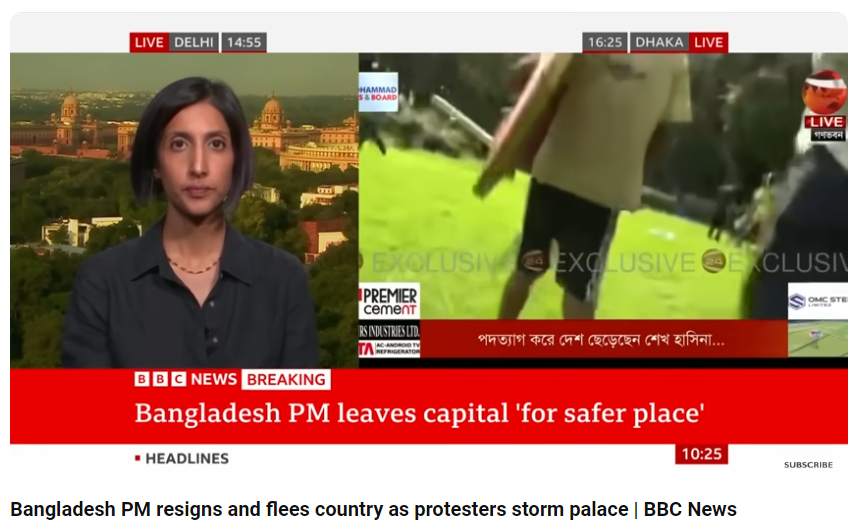
A quick look at journalist bylines and profiles reveals that many foreign correspondents for major international news outlets are based in New Delhi, where they cover South Asia as a whole. This positioning enables them to provide valuable regional context to the events unfolding in Bangladesh. For instance, Gerry Shih, the India Bureau Chief for the Washington Post, is based in New Delhi and is providing coverage on Bangladesh as well as neighbouring countries, as highlighted in his author bio for the article titled "Bangladesh Imposes Curfew After Dozens Killed in Anti-Government Protests." Similarly, a video report by the BBC, "Bangladesh PM resigns and flees country," features a journalist reporting "live" from Delhi on the situation in Bangladesh.
Why were these foreign correspondents reporting from afar rather than from within Bangladesh? In a time when proximity often shapes perception, is it possible for those away from the heart of the action to truly capture the full scope of what’s unfolding? Isn't the recent situation in Bangladesh significant enough to draw foreign journalists to report on the ground?
Why Foreign Correspondents leave Bangladesh?
Typically, foreign correspondents flock to hotspots during such crucial events and moments or stay as residents in key locations, serving as official representatives for their news outlets. For instance, Caroline Davies, the BBC's current Pakistan correspondent based in Islamabad, provided in-depth coverage of the country's elections in Feb 2024 and continues to report today on its evolving political landscape. Similarly, in 2022, Christina Goldbaum, the Afghanistan and Pakistan bureau chief for The New York Times, travelled by boat through the flood-stricken areas of Pakistan to report on the crisis, speaking with people stranded in villages.
However, in the past years, Bangladesh has also seen its fair share of international media presence during significant events. For example, during the 2013 Rana Plaza collapse in Dhaka, journalists from around the world quickly arrived to cover the disaster. Notably, New York Times reporter Jim Yardley was among the first American journalists on the scene, staying for an entire year to uncover numerous stories within Bangladesh's textile industry. Similarly, an exploration of the BBC archives reveals that in 1997, Frances Harrison served as the BBC's Dhaka-based foreign correspondent, reporting on diverse topics ranging from the annual Bauls festival to the severe flooding that affected millions.
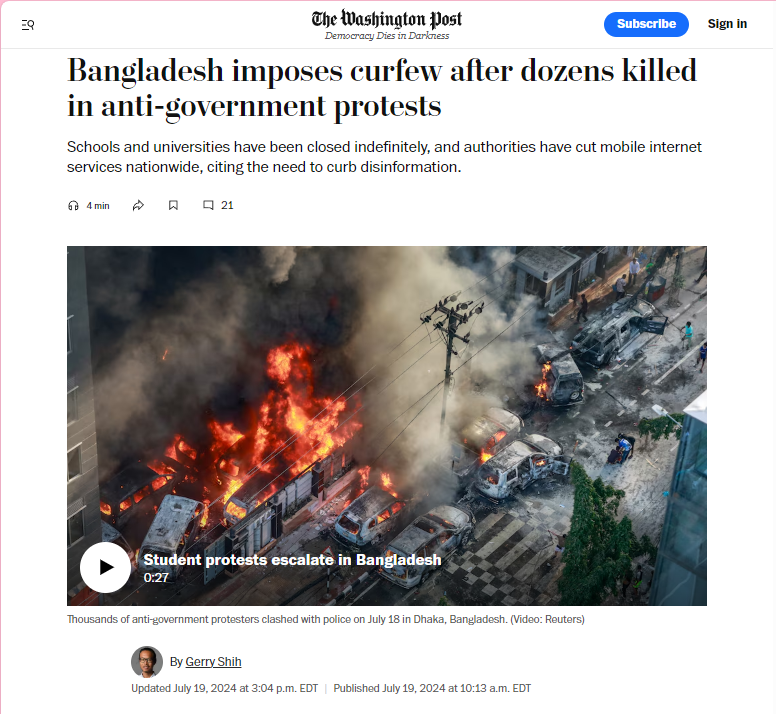
Given this history of international engagement, why is there a noticeable absence of foreign correspondents now, particularly during a time of dramatic political change? Several factors could contribute to this situation. Has the focus of the global media shifted elsewhere, considering Bangladesh less newsworthy on the international stage? Are economic constraints limiting resources for foreign coverage? Additionally, logistical challenges, such as difficulties in travelling within the country during ongoing protests, may pose significant barriers. Access to key locations and interviews might also be restricted, complicating on-the-ground reporting. Furthermore, political risks, including the potential for harassment or detention of foreign journalists, could deter media outlets from sending correspondents.
A notable example of these challenges is Susannah Savage, now a commodities correspondent at the Financial Times, who previously worked as the South Asia correspondent for The Economist. In 2022, she tweeted on X about her harrowing experience in Bangladesh, stating:
Working as a foreign correspondent for The Economist in #Bangladesh, I was picked up, held, interrogated, and eventually deported by intelligence services because of my reporting.
She accompanied her tweet with images of her injuries and the hashtag #JournalismIsNotACrime.
In December 2014, British journalist David Bergman, who was based in Dhaka at the time and is now in London, was found guilty by the Bangladesh courts for questioning and doubting the official death toll in the country’s 1971 independence war. It was ruled that his articles “hurt the feelings of the nation.” He was ordered to pay a fine or go to prison for a week. The case was viewed as a test of the country's commitment to free speech. As quoted in an article by The Guardian, Bergman said: "It is likely to make it increasingly difficult for journalists and others to comment on judicial proceedings and judgements in Bangladesh, even when those proceedings are completed."
Such cases raise the question of whether these threats contribute to the current absence of on-the-ground international media coverage in Bangladesh. In light of these challenges, it’s important to consider why many foreign correspondents are now reporting on Bangladesh from New Delhi.
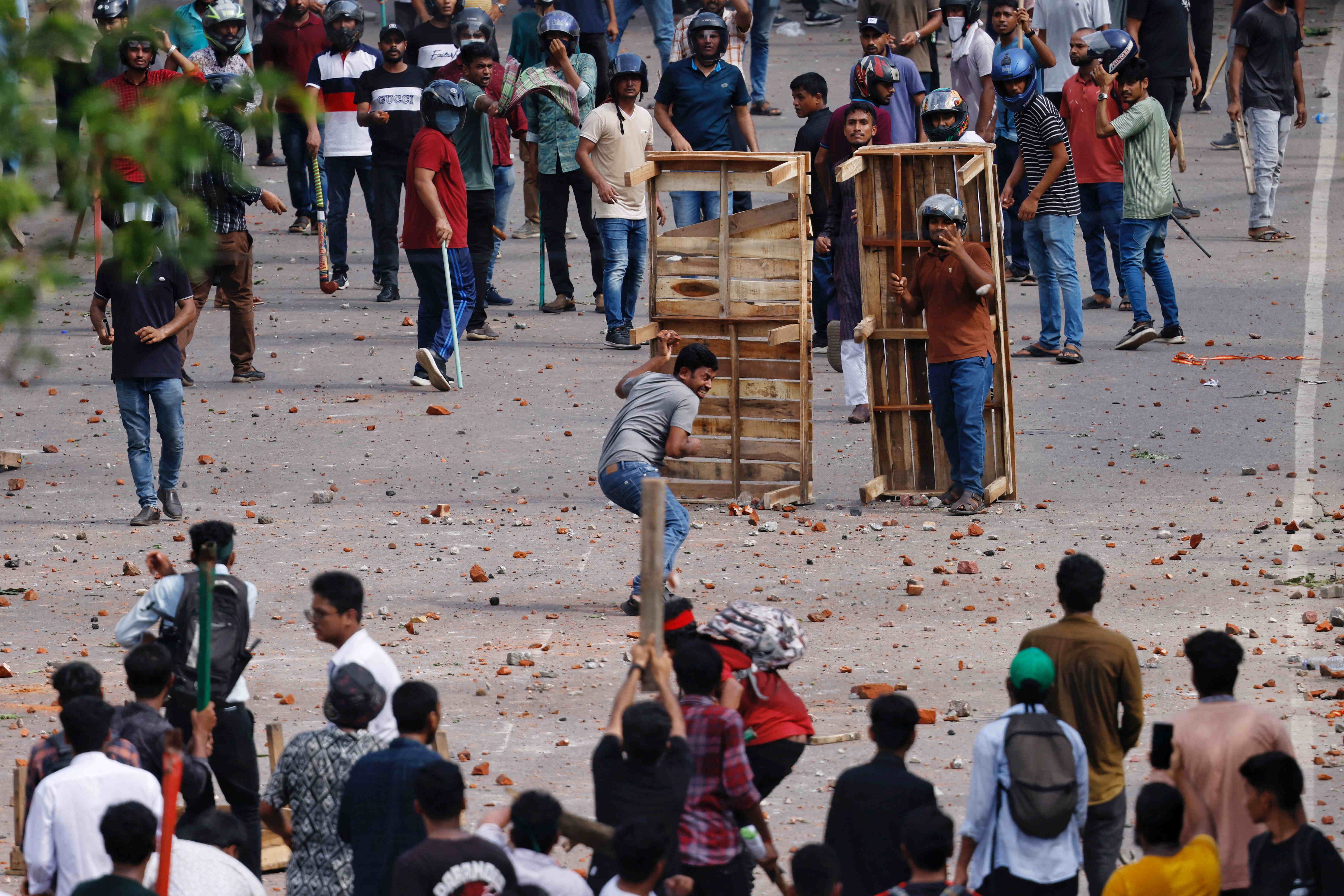
Why Do Foreign Correspondents Choose New Delhi?
It appears that New Delhi, the capital of India, has become a key hub for foreign correspondents covering South Asia. Several factors contribute to this trend. Its central location makes it easy to access important neighbouring countries like Nepal, Bhutan, Sri Lanka, Pakistan, and Bangladesh. Additionally, New Delhi offers political stability and is home to many resources.
Even the coverage of the January 2024 national elections in Bangladesh was largely handled by foreign correspondents based in Delhi or local Bangladeshi journalists. This was highlighted by Sam Jahan, an award-winning multiplatform journalist in Dhaka currently working for Reuters News Agency, who tweeted on X:
Local journalists and election 'observers' gather at the Bangladesh Election Commission today to get their accreditation passes regarding #nationalpolls. Wow at the number, while many foreign journalists, including from the NY Times, Bloomberg, AFP, and Reuters, did not get clearance to come over.
Were the authorities worried about potential negative or critical coverage of the election process? Could these denials be part of a larger trend of restricting press freedom during politically sensitive times in Bangladesh?
A report from the Committee to Protect Journalists (CPJ) raised concerns about media freedom in Bangladesh during the elections. The CPJ urged Bangladeshi authorities and political parties to protect the safety and freedom of the press during this crucial time. The report also mentioned that CPJ is investigating claims that foreign journalists were denied access to cover the elections.
Limitations of a Delhi-Based Perspective
While New Delhi may offer strong infrastructure, a well-connected press community, and easier access to interviews with regional experts, this approach has its drawbacks. The absence of a permanent, on-the-ground presence in Bangladesh can lead to misunderstandings about local issues, resulting in incomplete or misleading reporting.
New Delhi-based journalists may provide broad coverage of major events but could often miss the smaller details of daily life in Bangladesh, including the cultural, social, linguistic, and political nuances that a correspondent based in Dhaka would naturally notice. This distance means that correspondents in New Delhi may not capture the immediacy of events in Bangladesh and may rely on secondary sources or local journalists for information.
Despite New Delhi’s closeness to Bangladesh, significant social differences do exist between the two countries.
Comprehensive reporting is essential for influencing international actions that could help support a peaceful resolution in the country
The Importance of On-the-Ground Foreign Coverage
On the other hand, foreign correspondents who report from the ground play a vital role in driving change. For example, in an interview with the Asia Society about his investigative reporting on Bangladesh's textile industry, journalist Jim Yardley was asked, "Has anything changed since your stories from Bangladesh came out? Are working conditions any better?"
He responded: "Global awareness of the situation in the Bangladesh garment industry has certainly increased, particularly due to the media coverage of the Rana Plaza disaster. Many global brands have committed to improving factory safety, with some investing in bringing factories up to code. Brands are now under much greater scrutiny and pressure to be transparent about how their clothing is produced. Additionally, workers received a pay raise after negotiations among workers, brands, unions, factory owners, and the government."
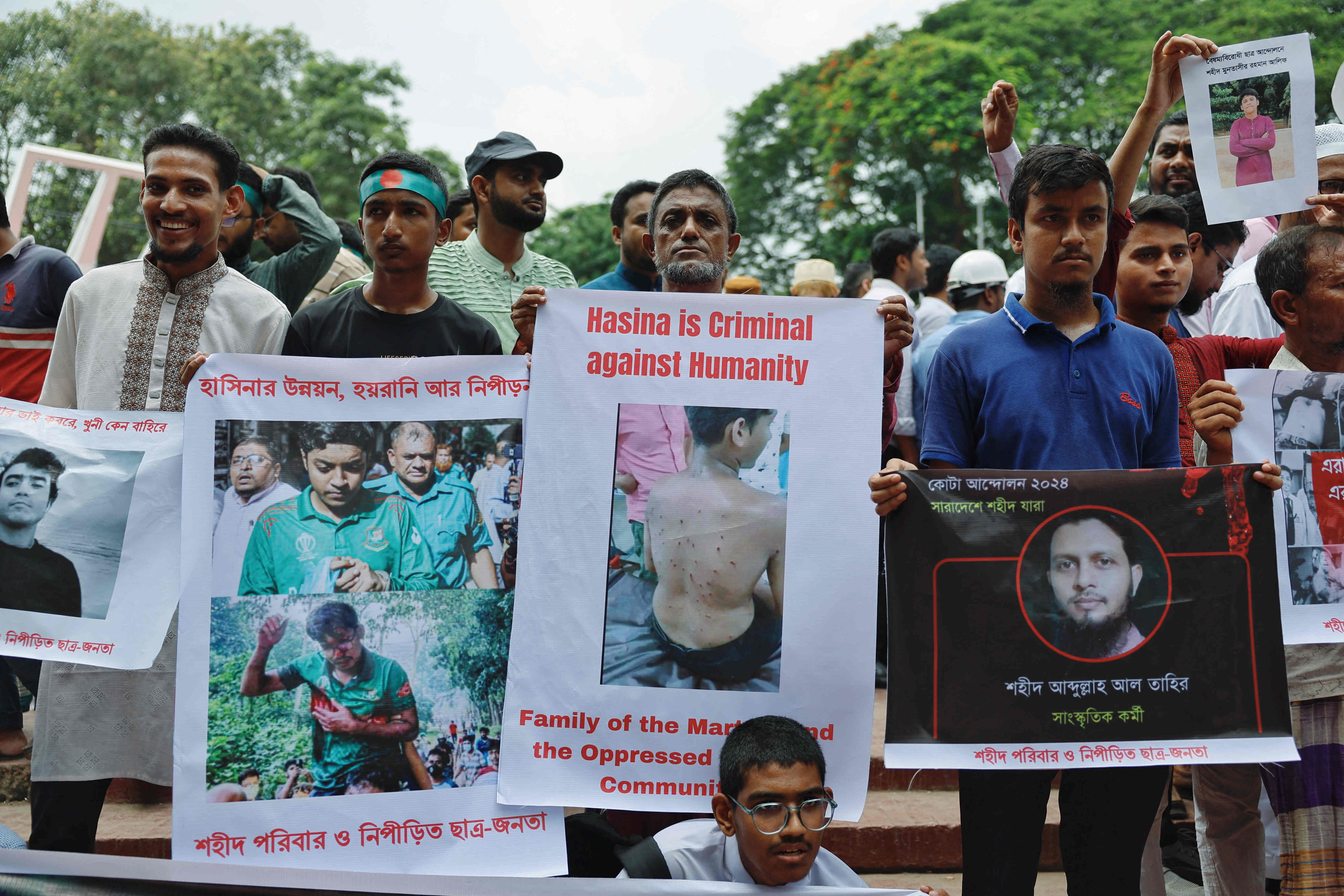
On-the-ground foreign correspondents like Yardley are crucial in highlighting these issues. By providing firsthand accounts and thorough investigations, they bring attention to problems that might otherwise go unnoticed. Their reporting can inspire public interest, pushing consumers and advocacy groups to hold institutions accountable. Moreover, their presence and reporting can lead to real changes in industries that affect people's lives.
Without such coverage, the international community may not fully understand the crisis in Bangladesh. As such, comprehensive reporting is essential for influencing international actions that could help support a peaceful resolution in the country.
The divergence between local and foreign reporting is not just about geography—it’s also about the choice of words and the framing of events and narratives.
The Vital Role of Local Journalists in Bangladesh
Nevertheless, local journalists, who live and breathe the air of Bangladesh, have a much deeper understanding. They are familiar with the public's feelings and the intricate layers of local events. Their reporting captures authenticity that is hard to achieve from a distance.
On August 6, 2024, Nazmul Ahason, a Bangladeshi journalist at Bloomberg News, based in Washington, notes in a tweet on X:
As a Bangladeshi journalist, I was moved by how reporters back home took control to tell their stories their way. They brilliantly covered the biggest story since Bangladesh came into being...
In the absence of foreign correspondents in Dhaka, local journalists stepped up to fill the gap. They navigated the complex political landscape, often at great personal risk, to ensure that the stories of Bangladesh reached a global audience. These journalists are not just observers but active participants in shaping the narrative.
The role of these journalists cannot be overstated. Yet, despite their expertise, they often face challenges in getting their stories the global attention they deserve. They may lack the resources, reach, or platforms that their foreign counterparts have, which can result in their reporting being overshadowed.
For example, Ruma Paul, a local correspondent for Reuters, has been consistent in her coverage, providing insights into the country’s challenges and triumphs and highlighting the voices of those directly affected.
The divergence between local and foreign reporting is not just about geography—it’s also about the choice of words and the framing of events and narratives. For example, Tahmid Zami, a climate correspondent based in Dhaka for Context News by the Thomson Reuters Foundation, shared personal observations, quotes, and important details. In his article titled: "Reporter's Notebook: Witnessing Bangladesh's Student Protests Turn Deadly," Zami highlighted the immediate reactions and emotions of the protests, showing the complex dynamics with a sensitivity that comes from his deep connection to the situation.
Similarly, Faisal Mahmud, an award-winning journalist based in Dhaka who covers Bangladesh for several international news outlets, including Al Jazeera, provided valuable insights into the aftermath of the protests. For instance, he reported on how "Young people replace police in Bangladesh capital," for Al Jazeera, highlighting the importance of local perspectives.
The role of these journalists cannot be overstated. Yet, despite their expertise, they often face challenges in getting their stories the global attention they deserve. They may lack the resources, reach, or platforms that their foreign counterparts have, which can result in their reporting being overshadowed.
The recent political upheaval in Bangladesh has highlighted the critical importance of both local and foreign journalism. As we look to the future, it's clear that the story of Bangladesh deserves to be told with the depth and richness that come from combining local insights with international perspectives. The world may have missed certain stories by not having a dedicated foreign correspondent in Dhaka.
However, by embracing collaborative journalism—where both local and foreign journalists work together on the ground—we can ensure that every story from Bangladesh, as well as other underreported regions, receives the attention it deserves.
